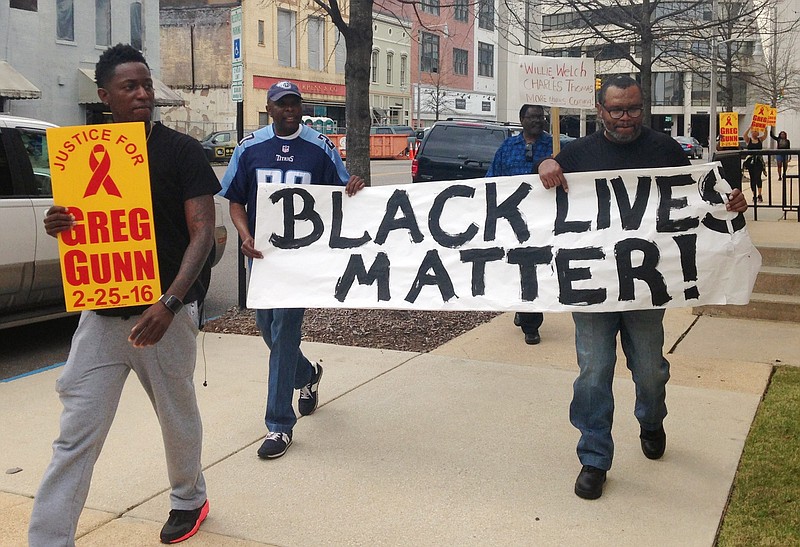MONTGOMERY, Ala. - More two-officer police teams are patrolling the streets of Montgomery, Alabama, after a white officer on a solo patrol shot and killed a black man in February.
Police Chief Ernest Finley said last week that two-officer patrol units have been assigned to six "high-crime" districts in a pilot program that will likely be expanded.
The new approach comes after 24-year-old Officer Aaron Smith shot 58-year-old Greg Gunn during an early morning patrol on Feb. 25. Smith said he stopped Gunn for a field interview and chased the man when he fled.
Smith, a four-year veteran of the force, has been charged with murder.
Smith's attorneys have stressed that he was a young officer working a solo graveyard shift and said he drew reasonable conclusions about a man walking alone in a "high-crime" area at 3 a.m.
Police and city officials won't directly comment on Smith's case, but Finley said the policy changes were made after the shooting "for the safety of the community and the officers."
In addition to increased two-officer patrols, the department has identified veteran officers with experience in those neighborhoods to train young officers in the field. The districts were identified based on citizen complaints and crime data, Finley said, prioritizing violent crimes but taking property crimes into account as well.
Police departments nationwide began shifting from two-officer to one-officer patrols in the 1990s and early 2000s due to budget cuts, said Gary A. Rini, a police procedures expert and retired Ohio police commander. Many departments enacted new policies like requiring solo officers to wait for backup in non-urgent situations.
"If there's not a crime in progress, is it so important to stop a person, by yourself, without backup?" Rini said. "Or is it something that could be passed over? That's a tough decision, but it is part of the equation."
The National Association of Police Organizations advocates for increased use of two-officer police patrols. Executive director Bill Johnson said they are "safer" across the board for officers but also enable officers to interact more comfortably with the community. Johnson said he's not familiar with the specifics of the Smith case but believes two-officer patrols are less likely to "worry about being alone in a potentially volatile situation."
"It's not because you've got another person watching what you're doing, but officers feel more comfortable," Johnson said. "They don't have to worry as much about their surroundings. They don't have to be as cautious or suspicious. ... (They) don't immediately have to escalate to the next level because they're by themselves."
In Montgomery, an external investigation into Gunn's death is ongoing, but testimony from a probable cause hearing last week revealed Smith violated the department's body camera policy and told investigators two conflicting accounts of the incident. Smith's case will now go before a grand jury.
The department is also "in the process" of upgrading its body cameras, Finley said. Officers currently have the discretion to turn their cameras on and off due to battery and storage issues.
Officials said Smith didn't switch on his body camera or his dash camera before approaching Gunn, a violation of department policy. Patrol car cameras automatically switch on when an officer activates his or her blue lights, but Smith didn't activate his. The first officer arriving on the scene didn't turn his camera on either.
Finley said the department does discipline officers who fail to use their cameras in the field.
"We have some success stories that really show the true essence of what happened, and we have some incidents where the officer didn't use it or used it ineffectively," Finley said. "It's a very effective tool, and we will continue to use and get better at it."
Gunn family attorney Tyrone Means said the policy changes are a "start," but he said there is a longstanding lack of trust in the city's police department because of violent incidents over the past 50 years. Means said police don't interact with community members and aren't familiar with the neighborhoods they are policing.
"A lot of work needs to be done to change that trust factor ... until a police officer doesn't look at every resident as a potential criminal," Means said. "We do need law enforcement. To cure the ills of crime within the community, the folks there are looking for police officers. But they're not looking to become casualties."
